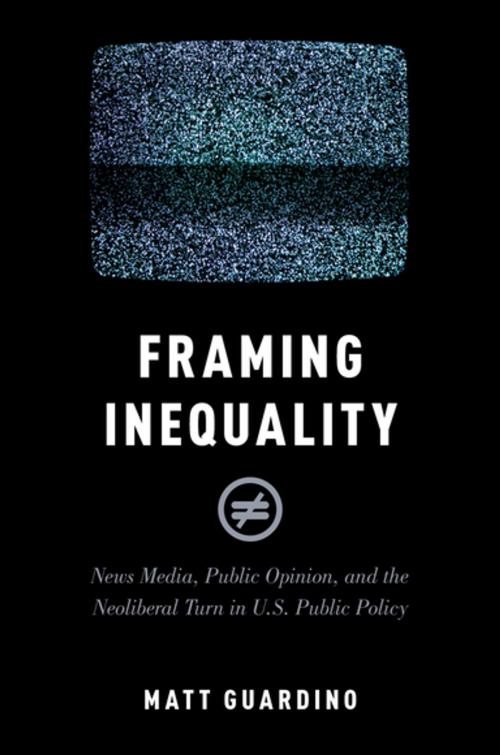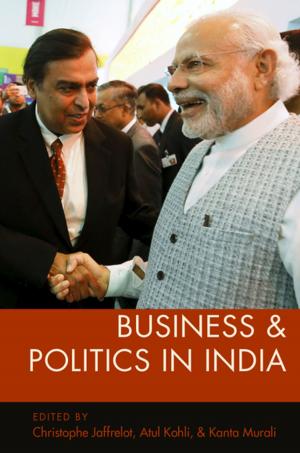Framing Inequality
News Media, Public Opinion, and the Neoliberal Turn in U.S. Public Policy
Nonfiction, Social & Cultural Studies, Political Science, International, Foreign Legal Systems, Government, Public Policy, International Relations| Author: | Matt Guardino | ISBN: | 9780190888213 |
| Publisher: | Oxford University Press | Publication: | February 1, 2019 |
| Imprint: | Oxford University Press | Language: | English |
| Author: | Matt Guardino |
| ISBN: | 9780190888213 |
| Publisher: | Oxford University Press |
| Publication: | February 1, 2019 |
| Imprint: | Oxford University Press |
| Language: | English |
Neoliberal policy approaches have swept over the American political economy in recent decades. In Framing Inequality, Matt Guardino focuses on the power of corporate news media in shaping how the public understands the pivotal policy debates of this period. Drawing on a wide range of empirical evidence from the dawn of the Reagan era into the Trump administration, he explains how profit pressures and commercial imperatives in the media have narrowed and trivialized news coverage and influenced public attitudes in the process. Guardino highlights how the political-economic structure of mainstream media operates to magnify some political messages and to mute or shut out others. He contends that news framing of policies that contribute to economic inequality has been unequal, and that this has undermined Americans' opportunities to express their views on an equal basis. Framing Inequality is a unique study that offers critical understanding of not only how neoliberalism succeeded as a political project, but also how Americans might begin to build a more democratic and egalitarian media system.
Neoliberal policy approaches have swept over the American political economy in recent decades. In Framing Inequality, Matt Guardino focuses on the power of corporate news media in shaping how the public understands the pivotal policy debates of this period. Drawing on a wide range of empirical evidence from the dawn of the Reagan era into the Trump administration, he explains how profit pressures and commercial imperatives in the media have narrowed and trivialized news coverage and influenced public attitudes in the process. Guardino highlights how the political-economic structure of mainstream media operates to magnify some political messages and to mute or shut out others. He contends that news framing of policies that contribute to economic inequality has been unequal, and that this has undermined Americans' opportunities to express their views on an equal basis. Framing Inequality is a unique study that offers critical understanding of not only how neoliberalism succeeded as a political project, but also how Americans might begin to build a more democratic and egalitarian media system.















